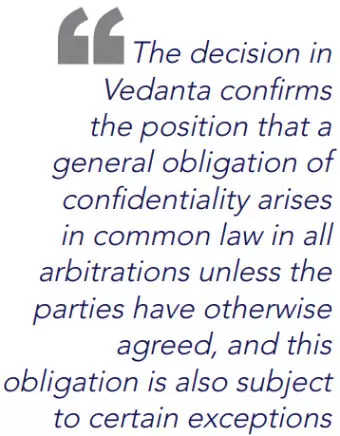- Home
- News
- Articles+
- Aerospace
- Artificial Intelligence
- Agriculture
- Alternate Dispute Resolution
- Arbitration & Mediation
- Banking and Finance
- Bankruptcy
- Book Review
- Bribery & Corruption
- Commercial Litigation
- Competition Law
- Conference Reports
- Consumer Products
- Contract
- Corporate Governance
- Corporate Law
- Covid-19
- Cryptocurrency
- Cybersecurity
- Data Protection
- Defence
- Digital Economy
- E-commerce
- Employment Law
- Energy and Natural Resources
- Entertainment and Sports Law
- Environmental Law
- Environmental, Social, and Governance
- Foreign Direct Investment
- Food and Beverage
- Gaming
- Health Care
- IBC Diaries
- In Focus
- Inclusion & Diversity
- Insurance Law
- Intellectual Property
- International Law
- IP & Tech Era
- Know the Law
- Labour Laws
- Law & Policy and Regulation
- Litigation
- Litigation Funding
- Manufacturing
- Mergers & Acquisitions
- NFTs
- Privacy
- Private Equity
- Project Finance
- Real Estate
- Risk and Compliance
- Student Corner
- Take On Board
- Tax
- Technology Media and Telecom
- Tributes
- Viewpoint
- Zoom In
- Law Firms
- In-House
- Rankings
- E-Magazine
- Legal Era TV
- Events
- Middle East
- Africa
- News
- Articles
- Aerospace
- Artificial Intelligence
- Agriculture
- Alternate Dispute Resolution
- Arbitration & Mediation
- Banking and Finance
- Bankruptcy
- Book Review
- Bribery & Corruption
- Commercial Litigation
- Competition Law
- Conference Reports
- Consumer Products
- Contract
- Corporate Governance
- Corporate Law
- Covid-19
- Cryptocurrency
- Cybersecurity
- Data Protection
- Defence
- Digital Economy
- E-commerce
- Employment Law
- Energy and Natural Resources
- Entertainment and Sports Law
- Environmental Law
- Environmental, Social, and Governance
- Foreign Direct Investment
- Food and Beverage
- Gaming
- Health Care
- IBC Diaries
- In Focus
- Inclusion & Diversity
- Insurance Law
- Intellectual Property
- International Law
- IP & Tech Era
- Know the Law
- Labour Laws
- Law & Policy and Regulation
- Litigation
- Litigation Funding
- Manufacturing
- Mergers & Acquisitions
- NFTs
- Privacy
- Private Equity
- Project Finance
- Real Estate
- Risk and Compliance
- Student Corner
- Take On Board
- Tax
- Technology Media and Telecom
- Tributes
- Viewpoint
- Zoom In
- Law Firms
- In-House
- Rankings
- E-Magazine
- Legal Era TV
- Events
- Middle East
- Africa

Confidentiality in Arbitration: Recent Developments in Singapore

Confidentiality in Arbitration: Recent Developments in Singapore Two recent developments in Singapore case law and legislation reflect a willingness to preserve confidentiality-related obligations in all arbitrations This article discusses recent developments in respect of the obligation of confidentiality in arbitration proceedings in Singapore. This is especially relevant to parties...
To Read the Full Story, Subscribe to Legal Era News
Access Exclusive Legal Era Stories, Editorial Insights, and Expert Opinion.
Already a subscriber? Sign in Now
Confidentiality in Arbitration: Recent Developments in Singapore
Two recent developments in Singapore case law and legislation reflect a willingness to preserve confidentiality-related obligations in all arbitrations
This article discusses recent developments in respect of the obligation of confidentiality in arbitration proceedings in Singapore. This is especially relevant to parties based within the region and particularly in India, who select Singapore as the seat of arbitration.1 Further, Indian parties, being the top foreign user of SIAC arbitration, regularly select the SIAC Rules to govern their arbitrations, which is one of the few sets of rules that imposes an express obligation of confidentiality.2

Contrary to litigation, arbitration proceedings are considered to be private in nature. Singapore has followed the English law approach and has adopted a general obligation of confidentiality in all arbitrations.3 Arbitral proceedings and documents arising therefrom will be regarded as confidential, even where no provision has been made for confidentiality in the arbitration agreement or applicable institutional rules. This obligation is an implied term arising from the parties' expectations of the arbitration agreement. This duty of confidentiality binds arbitrators and parties and extends to (i) documents disclosed in arbitration, (ii) hearing transcripts, and (iii) awards. The duty of confidentiality, however, is not sacrosanct, and there are exceptions to the duty.4

Two recent developments in Singapore case law and legislation reflect a willingness to preserve confidentiality-related obligations in all arbitrations.
In the last few years, the issue of the court's powers to enforce confidentiality obligations has been a source of debate in Singapore. In the case of BBW v BBX & Ors [2016] SGHC 190 ("BBW v BBX"), the Singapore High Court held that the courts have an inherent power to grant sealing orders in support of arbitration-related court proceedings.5 It confirmed that the courts may use their powers to preserve confidentiality-related obligations even in cases which may not be under the International Arbitration Act (Cap. 143A) ("IAA"), but relate to an arbitration.6 The Singapore High Court arrived at the decision to grant the sealing orders in spite of the fact that there was no express provision of confidentiality in the IAA.
In arriving at its decision in BBW v BBX, the test adopted by the Singapore High Court was whether the need to protect confidentiality was outweighed by public interest and open justice. BBW v BBX, however, did not arise under an investment treaty.

In the recent decision of Republic of India v Vedanta Resources plc [2020] SGHC 208 ("Vedanta") , the Singapore High Court had to consider whether the general obligation of confidentiality extended to both commercial and investment-treaty arbitration. The decision in Vedanta confirms the position that a general obligation of confidentiality arises in common law in all arbitrations unless the parties have otherwise agreed, and this obligation is also subject to certain exceptions.8
In Vedanta, the Republic of India sought a declaration arising from cross-disclosure orders in two related arbitrations - one against Vedanta (the "Vedanta Arbitration"), and the second against Cairn (the "Cairn Arbitration"). The tribunals in both arbitrations made cross-disclosure orders of varying degrees. The Singapore-seated Vedanta Arbitration tribunal ordered case-by-case cross-disclosure to uphold the general obligation of confidentiality imposed by Singapore common law, whereas the Netherlands-seated Cairn Arbitration tribunal ordered an open cross-disclosure regime.
The Republic of India sought a declaration from the Singapore High Court that there would be no breach of confidentiality if it disclosed any documents from the Vedanta Arbitration in the Cairn Arbitration.
While the Singapore High Court observed that the considerations which apply to a private arbitration do not apply with equal force to investment-treaty arbitrations and that important issues of public interest and public policy may warrant a different approach given the different stakeholders and the sovereign and public interests implicated,9 it ultimately declined to grant the declaratory relief sought. It upheld the tribunal's decision in the Vedanta Arbitration that the general obligation of confidentiality applies, without distinction, between commercial and investment treaty arbitration, to "all arbitrations but subject to a list of exceptions which are never closed".10
The Singapore High Court agreed with the following important observations of the tribunal in the Vedanta Arbitration that:
i. there is a strong public interest in a degree of transparency in investment-treaty arbitration;11 and
ii. new exceptions may be created depending on the needs of the situation and public policy considerations, notwithstanding that the common law approach is to take a narrow interpretation of public interest and justice exception.12
This is consistent with the approach taken previously in AAY and ors v AAZ [2011] SLR 1093 and BBW v BBX.
The Singapore High Court's decision in Vedanta is underscored by the recent amendment to the IAA to include a provision which explicitly recognizes the role of confidentiality in arbitration.
In October 2020, the Singapore Parliament passed the International Arbitration Act (Amendment) Bill 2020 to amend the IAA to include provisions conferring broad powers on the tribunal and the High Court to give directions or make orders to enforce obligations of confidentiality between parties:
(i) where parties to an arbitration agreement have agreed to in writing whether in the arbitration agreement or in another document;
(ii) under any written law or rule of law; or
(iii) under the rules of arbitration (including the rules of arbitration of an institution or organization) agreed to or adopted by the parties.
The amendment does not impose new confidentiality obligations or set out what the parties' confidentiality-related obligations are. The actual content of the obligations is still determined by common law, institutional rules and/or the agreement of the parties, but the amendment seeks to strengthen the ability of a party to enforce existing confidentiality obligations. This amendment is especially welcome in a world where remote hearings are commonplace, and issues of confidentiality have become particularly relevant in light of diminished physical control by tribunals.
2 Rule 39 of the SIAC Rules (2016); See also Article 30 of the LCIA Rules (2020) and Article 45 of the HKIAC Rules (2018).
3 MyanmaYaung Chi Oo Co Ltd v Win Win Nu [2003] SGHC 124.
4 AAY and ors v AAZ [2011] SLR 1093.
5 BBW v BBX &Ors [2016] SGHC 190.
6 In BBW v BBX, the court had to consider the fact that the parties to the court proceedings were different to the arbitration proceedings, but given the overlap in the circumstances of the case, the evidence adduced in the litigation would compromise the confidentiality of the arbitration.
7 Republic of India v Vedanta Resources plc [2020] SGHC 208 at [1].
8 AAY and ors v AAZ [2011] SLR 1093.
9 Republic of India v Vedanta Resources plc [2020] SGHC 208 at [117].
10 Republic of India v Vedanta Resources plc [2020] SGHC 208 at [165].
11 Republic of India v Vedanta Resources plc [2020] SGHC 208 at [167].
12 Republic of India v Vedanta Resources plc [2020] SGHC 208 at [168].
Stephenson Harwood LLP is licensed to operate as a foreign law practice in Singapore. Where advice on Singapore law is required, we will refer the matter to and work with our Alliance partner, Virtus Law LLP, where necessary.
Disclaimer – The views expressed in this article are the personal views of the authors and are purely informative in nature.


